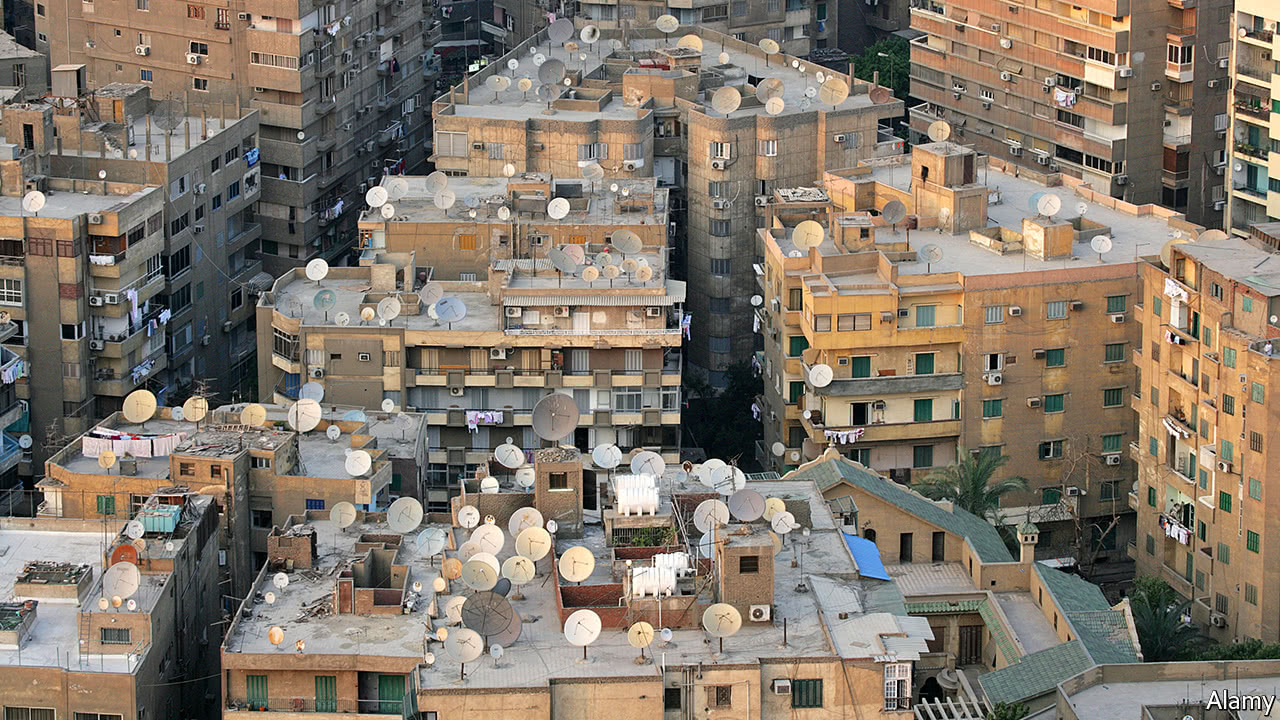Is the Arab world’s leading news channel an independent voice or a propaganda tool?

WERE it not for Saudi intolerance, there might never have been Al Jazeera, the Arab world’s most popular news channel. In its formative days the Qatari-funded station struggled to find good staff. Then Saudi Arabia kicked the BBC’s irritatingly truthful Arabic-language channel off a Saudi satellite, causing it to shut down. Suddenly dozens of journalists were looking for work. Al Jazeera hired them. When it went on the air in 1996 it was run by people steeped in the BBC’s standards.
Al Jazeera is now at the centre of a feud pitting Saudi Arabia against Qatar, its super-rich neighbour. Several Arab countries, including Egypt and the United Arab Emirates (UAE), have joined the Saudis in isolating the tiny monarchy over its alleged support for terrorism and its ties to Iran. But what really irks them is how Qatar has used Al Jazeera to wield outsize influence in the region. They see it as a propaganda tool, promoting an agenda often at odds with their own.
The coalition is demanding that Qatar close Al Jazeera, and agree to 12 other conditions, before dropping their blockade. Several countries have already banned the station and blocked its website. This has led to a backlash from those who see something unique in Al Jazeera. Most other channels pump out sterile state-approved reports, but Al Jazeera is an independent broker of information. Or at least it was.
In its early days the station distinguished itself with intrepid reporting, heated debates and unsparing coverage of autocrats, save its Qatari hosts. It was audacious, relatively, calling Saddam Hussein a “dictator” and allowing Israelis on the air. Dissidents, Islamists and pan-Arab nationalists were given a platform. The channel was indeed “a voice for the voiceless”, as it claimed. While vexing the region’s censors, it won awards. More tellingly, it has at one time or another been kicked out of nearly every country in the region.
But the station has also welcomed, and championed, extremist viewpoints. It broadcast messages from Osama bin Laden and allowed Yusuf al-Qaradawi, an Islamic theologian, to advocate violence on his own talk show. The bureau chief in Beirut once hosted an on-air birthday party for a militant convicted of killing four Israelis. Its war coverage seems deliberately incendiary. Some in the West, familiar only with Al Jazeera’s tempered English offering, have compared it to biased stations in America. But Al Jazeera Arabic is like “Fox News on steroids”, says Hussein Ibish of the Arab Gulf States Institute, a think-tank. “It goes much further, flirting with the promotion of violence.”
By the time of 2011’s Arab spring, Al Jazeera was already well established. But its coverage of the uprisings marked a turning-point. Its reporters beamed out live images from raucous protests. The channel became the primary source of information for participants and observers. Al Jazeera’s web traffic increased by 2,500% during the revolution in Egypt, despite the government ransacking its Cairo bureau. “Long live Al Jazeera!” chanted protesters in Tahrir Square.
Qatar’s neighbours were not nearly as thrilled with the station. They feared that the uprisings might spread to the Gulf. Al Jazeera’s favourable coverage of victorious Islamists, such as the Muslim Brotherhood in Egypt, further alienated the Gulf rulers, who see the group as a threat. It has also led to criticism that Al Jazeera is following Qatar’s lead, at the expense of its editorial integrity. The station takes positions “not based on journalistic priorities, but rather on the interests of the foreign ministry of Qatar,” said Aktham Suliman, a former correspondent, after quitting in 2012.
Al Jazeera continues to offend. When 12 Saudi soldiers were killed in Yemen in April, the station failed to refer to them as “martyrs”, enraging Riyadh. It angers the Egyptians by referring to the removal of the Brotherhood by the army in 2013, as a “coup”, which it was. The station has also given favourable coverage to Jabhat al-Nusra, the al-Qaeda affiliate in Syria. Since Qatar’s expulsion from the Saudi-led coalition fighting in Yemen, Al Jazeera’s reporting on the war has grown more critical. It now highlights the bombing of civilians and a cholera epidemic exacerbated by the fighting. The coalition “has proven to have no plan”, said a reporter on June 16th. Al Jazeera will probably survive this crisis: but the Qatari government may force it to tone things down.





